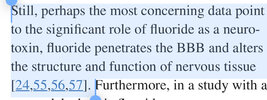Ghoul
Member
Are steroid precursors next?
Follow along with the video below to see how to install our site as a web app on your home screen.
Note: This feature may not be available in some browsers.
I hope not
As long as its a luktrative business, someone always fill the gap.
But it would be a shame.
Do You think the story has any relevance to us ? It’s talking about fent producers nothing to do with AASIt will be hard for guys who rely on these drugs for so long. AAS users will adapt quicker than the newer users of gh secretagogues, glps and other peptides.
There are also individuals who have the ability to procure items the way they did before. Others will just stop cold turkey like some of us when life got in the way of bodybuilding.
No matter, India is just waiting for the opportunity to step in I think.
OP is saying what if steroids is next.Do You think the story has any relevance to us ? It’s talking about fent producers nothing to do with AAS
Do You think the story has any relevance to us ? It’s talking about fent producers nothing to do with AAS
fentanyl is illegal in China, this is about enforcing existing laws, not creating new onesOP is saying what if steroids is next.
fentanyl is illegal in China, this is about enforcing existing laws, not creating new ones
Yep, check out what happened with Clenbuterol. If for some reason it magically went from cows to the table of their athletes like it did clen, chances of it and it’s kind might be banned again.I figure most people here are able to make the connection between chemical suppliers who make hundreds of pharmaceutical precursors and steroid raws, another controlled substance the DEA has an interest in, yes.
Yep, check out what happened with Clenbuterol. If for some reason it magically went from cows to the table of their athletes like it did clen, chances of it and it’s kind might be banned again.
For sometime am I think even now, no one in china is selling clen raws, they are producing tabs illegally with the other products though.
Good point, I hadn't noticed that.
They don't sell modafinil raws either. Asia really doesn't like cognition enhancing PEDs.
Although QSC sells a potent variety of it, FLmodafinil, that extra fluorine atom attached to it has been linked with brain damage since it "carries" whatever is attached to it right across the blood brain barrier.
Interested to learn more about the alleged brain damage linked to FLmodafinil! Any links to share? Please and thanks.

Better stock up now as there may well be shortages.
To be clear I said it was linked, there's not much research into FLmodafinil, unlike extensively researched modafinil, that would confirm this. However, I don't want be the guinea pig that finds out later this theory is accurate.
There's plenty of research showing how fluorine and associated compounds affect the brain, you can google "fluorine brain NIH" Here's one:
View attachment 288282
Fluoride in the Central Nervous System and Its Potential Influence on the Development and Invasiveness of Brain Tumours—A Research Hypothesis - PMC
The purpose of this review is to attempt to outline the potential role of fluoride in the pathogenesis of brain tumours, including glioblastoma (GBM). In this paper, we show for the first time that fluoride can potentially affect the generally ...www.ncbi.nlm.nih.gov
TLDR version. Fluorine is a "key" that allows substances to easily cross the blood brain barrier.
The second potential mechanism of damage is this:
When modafinil reaches the brain, only a small amount of the total ingested, it makes the cells related to processing information become more efficient, which causes them to consume more energy (glucose), producing more oxidative stress, however, this is countered by an equal rise in antioxidation processes protecting the brain (likely even more protective than is needed, effectively acting as an anti aging compound). Flooding the brain with much larger quantities of modafinil all at once may overwhelm the antioxidant mechanism and result in damaging inflammation.
Yes as we may see shortages of raw materials which will translate into less finished product which also will precipitate price increases as well. That's why right now is a good time to stock up before prices go up potentially significantly. Hopefully the supply chain will then right itself at some point then we'd see better availability.At least in the US, without getting political at all, this is merely an objective observation, the most radical changes typically happen in the first few months following a presidential election. Especially any moves that could be unpopular with one group or another. The idea is to put as much distance between the change that pisses people off and the next election, since short memories are a fact of life.
So yeah, just for that it's probably a good idea. The law's light touch and tolerance when it comes to PEDs as we've seen in the last few years is not guaranteed.

